Sevres, 1920. The time when Soviet and Turkish interests converged
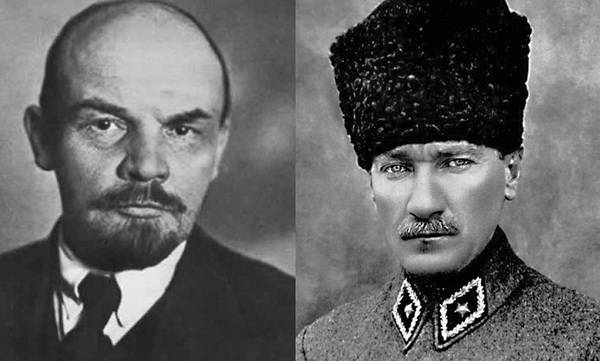
Not quite Versailles
Winston Churchill, in his work "The World Crisis" (which has already become a textbook), called everything that happened after the World War with the Ottoman Empire "a true miracle." But exactly one hundred years ago, on August 10, 1920, the Sevres Peace Treaty was signed in France between the Entente and the Ottoman Empire, which provided for the actual dismemberment of not only the empire, but also its own Turkish part.
But Sevres-1920 was almost the only one from the Versailles system, which was never implemented. And this happened only thanks to the colossal military-technical, financial and political support that Soviet Russia provided to the nascent Kemalist Turkey.
An unexpected alliance of age-old strategic adversaries became possible only because of the upheavals that happened then to Europe and the world as a whole. This was embodied, among other things, in the return of Turkey at the turn of the 1910s - 1920s most of Western Armenia and Tao-Klarjetia (part of southwestern Georgia), which became part of Russia back in 1879; these territories are still part of Turkey.
According to the Treaty of Sevres, the former Ottoman Empire was obliged to cede significant territories to Greece (including Izmir, Adrianople and adjacent areas), Armenia, newly formed Iraq, Palestine (British protectorates) and the Levant (French protectorates of Syria and Lebanon), as well as Kurdish and the Saudi sheiks.
Most of southwestern Anatolia and almost the entire territory of Cilicia went under the mandate administration of Italy and France, respectively. The key region of the Bosphorus - the Sea of Marmara - the Dardanelles, together with Constantinople, were transferred under the full control of the Entente.
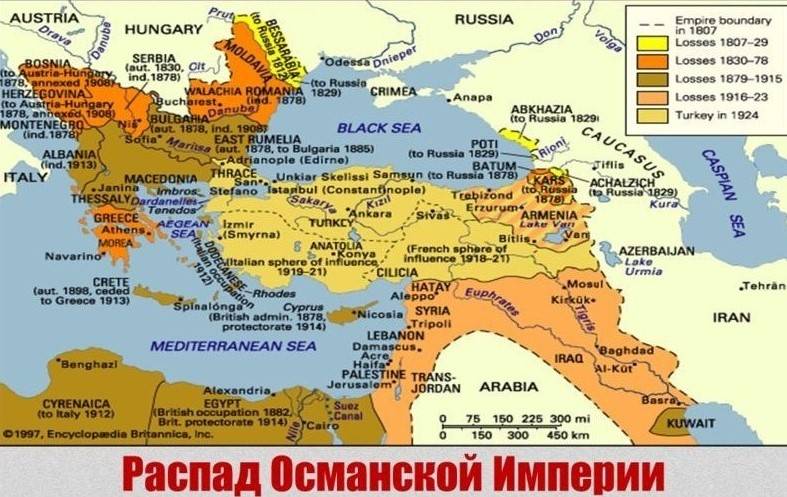
Turkey had only the Anatolian Highlands with limited access to the Aegean and Black Seas. The country's armed forces were not only severely limited in armaments, but also completely deprived of the right to have heavy artillery, and the fleet - battleships, cruisers and destroyers. And the established reparations regime, recalculated at the current US dollar exchange rate, reached about a quarter of Turkey's GNP in 2019.
Turkey above all
It is not surprising that the Republican Grand National Assembly of Turkey (VNST), created in April 1920 by M. Kemal and I. Inonu (presidents of Turkey in 1920-1950), categorically refused to ratify the Treaty of Sevres.
At the same time, Soviet Russia sought to "protect" Turkey from complicity in the intervention of the Entente, which unfolded in early 1918 on more than a third of the territory of the former Russian Empire. In turn, the Kemalists were in maximum need of a military-political and economic ally, which at that time could only be Soviet Russia.
Taking into account the confrontation of the new (that is, republican) Turkey with Greece (the war of 1919-1922) and in general with the Entente, this contributed to the formation of a kind of anti-Entente from the Bolsheviks and Turks.
In connection with the above factors, on April 26, 1920, M. Kemal turned to V.I.Lenin with a proposal:
What did Kemal offer?
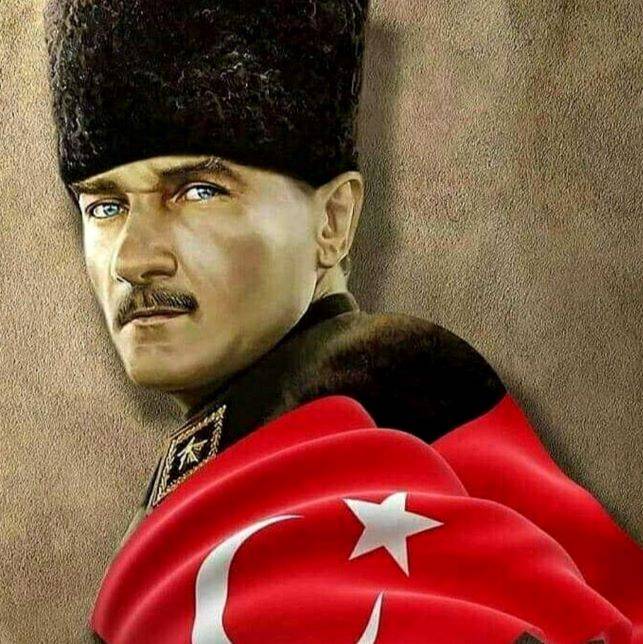
Then more specifically:
Second. If the Soviet forces intend to open military operations against Georgia or through diplomatic means, through their influence, force Georgia to enter the union and undertake the expulsion of the British from the territory of the Caucasus, the Turkish government undertakes military operations against imperialist Armenia and undertakes to force the Republic of Azerbaijan to enter the circle of Soviet states.
... Third. In order, firstly, to drive out the imperialist forces that occupy our territory, and, secondly, to strengthen our internal strength, to continue our common struggle against imperialism, we ask Soviet Russia in the form of first aid to give us five million Turkish lira in gold , weapon and ammunition in quantities that must be clarified during negotiations and, in addition, some military-technical means and sanitary material, as well as food for our troops, which will have to operate in the East.
That is, to operate in Transcaucasia (which was in 1919-1921). By the way, a comment is also needed on the second point. As you know, Kemalist Turkey, with the assistance of the RSFSR, successfully implemented these plans in relation to Armenia and Azerbaijan in 1919-1921.
Moscow, on demand
The leaders of Soviet Russia promptly agreed to these initiatives. Already in May 1920, a military mission of the VNST headed by General Khalil Pasha was in Moscow. As a result of negotiations with L. B. Kamenev, the Council of People's Commissars of the RSFSR first of all confirmed the cessation of the war between Russia and Turkey and the withdrawal of Russian troops from all eastern Turkish regions, announced by the Brest-Litovsk Treaty (1918).
Also, the remnants of the troops not involved in the Civil War were withdrawn from the regions of Batum, Akhaltsikh, Kars, Artvin, Ardagan and Alexandropol (Gyumri). Still part of Russia. Almost all of these areas in 1919-1920 were occupied by the troops of Kemalist Turkey.
The introduction of troops into the Armenian lands was accompanied by a new wave of genocide. One of the organizers of the Turkish genocide of Armenians during the World War II, Khalil Kut (the same Khalil Pasha), solemnly stated in his diaries that he “killed many tens of thousands of Armenians” and “tried to destroy the Armenians to the last man” (see. Kiernan Ben, "Blood and Soil: Modern Genocide", Melbourne University Publishing (Australia), 2008, p. 413).
Ignoring this, the Council of People's Commissars decided to allocate one million gold rubles to Turkey (774,235 kg in terms of gold). The first 620 kg of bullion and royal coins arrived through Azerbaijani Nakhichevan by the end of June 1920, the rest (in gold rubles) Turkey received through Nakhichevan by August of the same year.
But Turkey considered this assistance insufficient. The RSFSR sought, for obvious reasons, to quickly strengthen the Bolshevik-Turkish anti-Entente. Therefore, already in July-August 1920, at the talks in Moscow and Ankara, the forms and amounts of further assistance to the Kemalists were agreed upon.
The RSFSR provided Turkey practically free of charge (that is, with an indefinite return period) 10 million gold rubles, as well as weapons, ammunition (mainly from the warehouses of the former Russian army and seized from the White Guard troops and interventionists). In July-October 1920, the Kemalists received 8 rifles, about 2 machine guns, over 5 million cartridges, 17,6 shells, and almost 200 kg of gold bullion.
In addition, they were transferred to Turkey in 1919-1920. almost all weapons with ammunition and all the commissary reserves of the Russian Caucasian Army, which operated in 1914-17. in Eastern Anatolia (i.e. in Western Armenia) and in the northeastern region of the Turkish Black Sea region.
According to the famous Turkish historian and economist Mehmet Perincek, in 1920-1921. Soviet Russia supplied Turkey with more than half of the cartridges used in military operations against the Entente, a quarter (in general) of rifles and guns, and a third of gun shells. Since Kemal did not have a navy, Turkey received in the same years from the RSFSR five submarines and two destroyers of the Russian Imperial fleet ("Alive" and "Creepy").
Thus, on the eve of the Treaty of Sevres, Ankara thoroughly paved the way both for its (treaty) obstruction on its part and for eliminating possible political consequences. Accordingly, such significant assistance from Moscow, as the Turkish leaders Kemal and Inenu later officially recognized, played a crucial role in the Turkish military victories of 1919-1922. over the troops of Armenia and Greece.
During the same period, Red Moscow did not object to the return to Turkey of the regions that had been part of the Russian Empire since 1879. The Bolsheviks considered it too expensive a pleasure to keep them behind. Naturally, the weapons transferred to Turkey were used by Turkey for further "cleansing" of the Armenians and Greeks in 1919-1925.
In view of Moscow's strategic interest in "friendship" with Ankara, the former actually gave a second carte blanche to the most unbridled terror of Mustafa Kemal's supporters and followers against the local communists. The USSR demonstratively did not react to it, with the exception of the period from 1944 to 1953.
As for, for example, the entire territory of Western Armenia, the decree of the Council of People's Commissars "On Turkish Armenia" (January 11, 1918), as is known, proclaimed support by Soviet Russia for the right of the Armenians of this region to self-determination and to create a unified Armenian state. But the military-political factors that followed soon radically changed the position of Moscow on this issue and in general regarding the Armenian, Kurdish issues in Turkey, as well as in relation to Turkey itself ...
The boundaries of the possible ... and the impossible
The rapprochement between Russia and Turkey, stipulated by the Treaty of Sevres, led, among other things, to the solution of the issues of the borders of Armenia and Georgia without the participation of these countries. At the same time, the independence of "non-Bolshevik" Georgia, which remained until March 1921, contributed to Moscow's approval of Turkish plans to "return" to most of Tao-Klarjetia in southwestern Georgia.
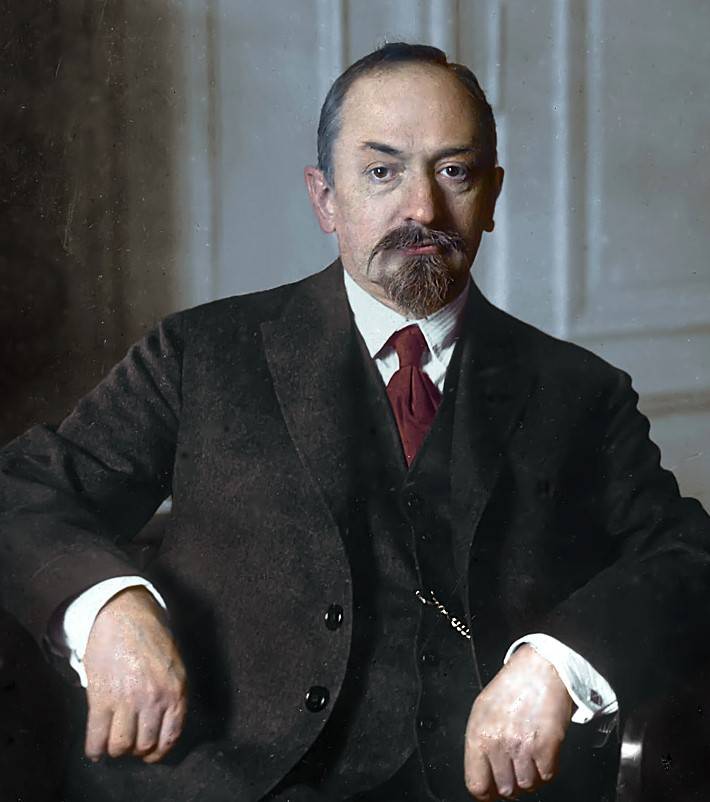
The People's Commissar for Foreign Affairs of the RSFSR G. Chicherin (pictured above) wrote on this issue to the Central Committee of the RCP (b):
The same letter also refers to Moscow's fears of an "excessive" alliance between Moscow and Ankara against Great Britain:
At the same time, Moscow actually gave the go-ahead for the "cutting" of the borders of Armenia initiated by Turkey, which, we repeat, was embodied in the transfer of the Nakhichevan region to Azerbaijan in 1921 and in the restoration of Turkish sovereignty in the ex-Russian part of Western Armenia (Kars, Ardagan, Artvin, Sarykamysh) in 1920-1921
This line is also seen in the letter of the head of the Caucasian Bureau of the Central Committee of the RCP (b) G.K. Ordzhonikidze to the People's Commissar G. Chicherin on December 8, 1920:
In the development of this approach, it was noted that
Pan-Turkist expansionism was not at all rejected by the Kemalists either before or after Sevres. This was first announced by M. Kemal on October 29, 1933 at the celebration of the 10th anniversary of the official proclamation of the Turkish Republic:
- Alexey Chichkin, Alexey Podymov
- pastvu.com, ayyamru.files.wordpress.com, www.ljplus.ru, wordpress.com, from the authors' archive
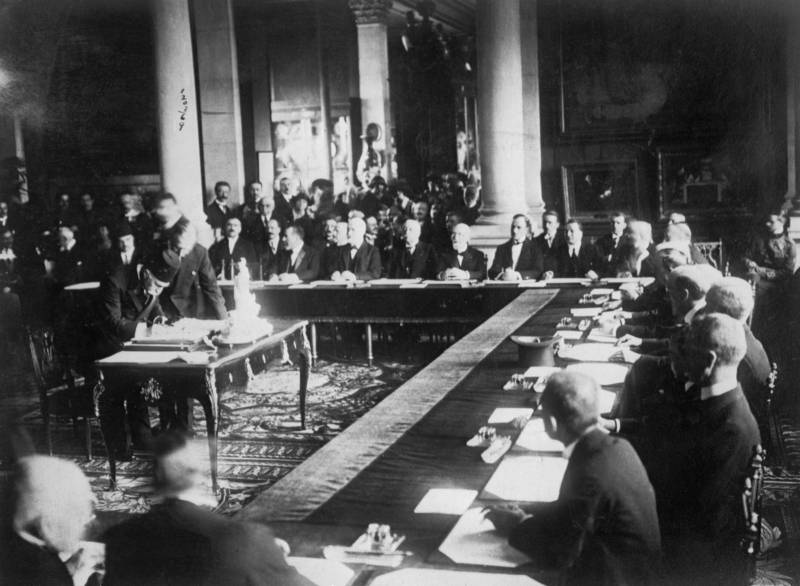
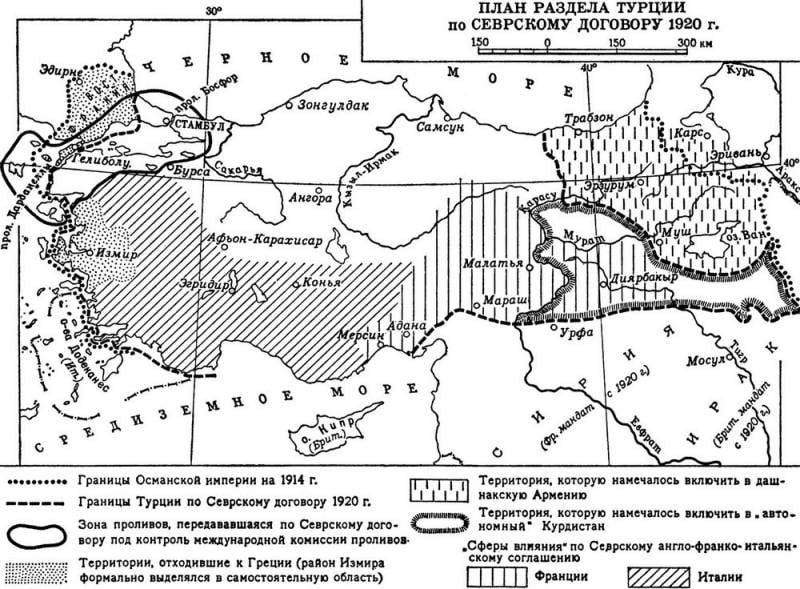
Information